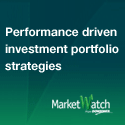Biography: Kevin Carmichael writes about economics and economic policy for the Globe and Mail.
Q: Mr. Carmichael, given the plethora of statistics and opinions that you are privy to, what is your take on the Canadian economy going forward? Are there any areas of the economy that are showing signs of unexpected weakness or are there any areas of the economy that are showing signs of unexpected strength?
A: I’d like to say off the top that I’m more of a spender than an investor, so nothing I say is influenced by any particular stake or bet. (You and your readers can debate whether this enhances or weakens my credibility!) I’d also like to make clear that I’m not an economist. My degree is in writing sentences. Any expertise I have comes from 10 years of reading what economists have to say.
With those provisos out of the way, I would say that I’m fairly confident in Canada’s prospects over the near term. Over the past year, the optimists have been in the minority. But while much of the media’s attention has been focused on Nouriel Roubini and the other bears who called the U.S. housing collapse, the optimists have been far more accurate in anticipating the trajectory of recovery. I remember calling Roubini back in 2006 and 2007. He was so negative that it was difficult to use him in stories because his views were so far off consensus. Clearly, I and others should have taken him more seriously. Now, when the consensus is gloom, I can’t help but wonder if we should pay a little more heed to those few who think a V-shaped recovery is more likely than a double-dip recession. In Canada, National Bank and the Conference Board of Canada were the only two research shops that definitively called short, deep recessions. National Bank, for one, seems to have a little more faith in the U.S. consumer than most. National Bank’s chief economist, Stefane Marion, never believed that the U.S. savings rate is going to reach 10 per cent or stay at elevated levels. Something else to keep in mind when considering Canada’s economy is that while we tend to think of ourselves as an exporting nation, we’re in reality an economy driven by services. With resource prices high, there’s money coming into the country that is being spent on consultants, architects, financial advisers, baristas, and the like.
Over the longer term, I’m wary. I encourage everyone to go to the Bank of Canada’s Web site and read Mark Carney’s speech to the Ottawa Economics Association. While there’s a lot going right for Canada, the country’s productivity rate is awful and no one seems to know why. If this doesn’t turn around, we will go into the next decade a far less wealthy nation. This also is a significant concern of David Dodge, the previous central bank governor who I wrote about in the latest issues of the ROB Magazine. The Baby Boomers are leaving the workforce and they won’t be replaced man and woman for man and woman. If we don’t find ways to create more wealth with fewer resources, the heady days we remember from before the crisis won’t return. Even the optimists will tell you that.
Q: Despite Canada not faring as badly as the United States during the last recession, the IMF and a number of banks are predicting that economic growth for 2010 for both economies is likely to be identical - given this surprising prediction, what is the good and bad takeaway for investors and everyday Canadians?
A: You must remember that the U.S. remains the world’s most dynamic economy. One of the great American myths is the hero that picks him or herself up off the floor and carries on. (Think Rocky.) One of the best examples of this is the U.S. labour market. Unlike Canadians, Americans tend not to identify with any particular region. They identify with having a job, so there’s been less political pressure over American history for strong social safety nets. So the U.S. economy will bounce back quickly. But this time, that bounce has limits. The U.S. is facing the same demographic issues that Canada is facing. While the U.S. doesn’t have a productivity problem, it does have a very serious debt problem. The U.S. is facing a long horizon of higher interest rates and higher taxes. When considering GDP, you should also always remember that in the end it is a mathematical equation. The U.S. is starting from a worse position than Canada, and by historical standards, it’s rebound should be much stronger than current estimates.
Q: Given the recent rise of the Canadian Dollar to near parity levels with the US Dollar and news of the Russian Central Bank adding Canadian Dollars, what are your thoughts on the possibility of the loonie emerging as a reserve currency?
A: The Canadian dollar will never become a reserve currency like the U.S. dollar is, or the euro potentially could be, because there aren’t enough of them in circulation. Granted, if the U.S.’s finances were as strong as Canada’s, there would be no talk about the dollar being usurped as the dominant reserve currency. There’s lots of demand for Canadian bonds and the currency investors need to buy them, but in the end, the supply of a unit of exchange must stay in line with the amount of goods and services its economy produces. A reserve currency must also be one that can be easily converted. As popular as Canada is with currency traders at the moment, I doubt they could use any of those loonies to hire a cab in London or Tokyo, while you might be able to convince the driver to take dollars or euros. The Canadian dollar is being used by central banks and others as hedge against the volatility of the dollar and euro. That makes Canada something of a safe haven, but it’s important to keep things in perspective.
Q: Mr. Carmichael, the Bank of Canada Governor Mark Carney has recently been opining on the declining productivity growth in the last recession (something that hasn’t happened in three decades). He has also changed the rhetoric in his speeches with regards to inflation concerns, and many speculate that the Bank of Canada may raise sooner than expected. Should interest rates begin rising and baby boomers begin retiring do you think this is going to dampen productivity even further in the future…? Are policy makers in Ottawa worried about this and what are they doing to address this solution?
A: I’ll answer the last part of the question first. Yes, policy makers are very worried about productivity. Some will tune out Mr. Carney and Finance Minister Jim Flaherty on this issue because productivity is something officials and economists have worried about for decades. But there’s something more acute at the moment, and I think it has to do with the demographic challenges you note in your question and that I mentioned earlier. We’ve known this would be a problem for a long time, but now that problem is clearly on the horizon. Imminent threats tend to focus the mind more than faraway ones. In many ways, policy makers think they’ve done a lot. Corporate tax rates are among the lowest in the world. Canada’s financial system is strong, so there should be capital available. Yet productivity rates don’t budge. Many people will tell you that it’s cultural – Canadians are just too adverse to risk to make the investments needed to boost productivity. I think this is what Mr. Carney was saying in his speech earlier this week. It might be time for executives to take the baton from policy makers. Will they?
Q: Lastly, with the addition of Mr. Boivin & a likely new candidate to replace deputy governor Pierre Duguay, the Bank of Canada’s Governing Council has undergone an almost complete overhaul since 2007. In addition, most of the members are joining from outside the Bank of Canada. In your opinion, Mr. Carmichael, what are the likely implications of this?
A: Remember that John Murray and Tiff Macklem have spent the bulk of their professional careers at the Bank of Canada, so there remains some historical memory. Also, Mr. Duguay’s replacement will come from within the central bank, so if there were morale issues forming about how all the recent additions to the Governing Council were coming from outside the institution, this decision should help to assuage them. But I think you can argue that it’s time to have a mix of experiences and expertise on the Governing Council. Institutions such as the Bank of Canada, finance ministries and the International Monetary Fund seemed to realize in the early part of this decade that they lacked real life expertise in financial markets. You saw investment bankers recruited to fill senior posts in the official sector, of which Mr. Carney is one of the best examples. The deputy governors who are leaving the Bank of Canada are excellent economists, but there’s a difference between studying how markets work and actually participating in those markets. The governing council has a good mix now. Canadians should be well served.
Thank you Mr. Carmichael!







